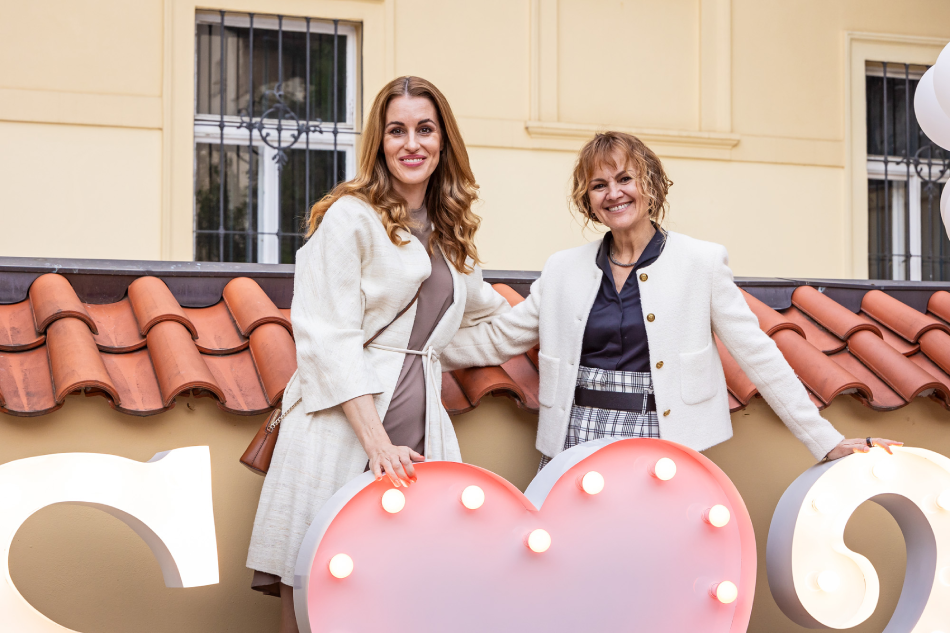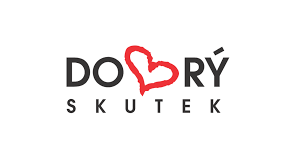"There are no small donations," says Lucie Křížková, Director of Dobrý skutek
A Story of How Technology Empowers Nonprofits to Grow

From left to right: Lucie Křížková, Director of Dobrý skutek, and Bára Hrubá, founder and chairwoman of the association
Lucie Křížková has been involved with Dobrý skutek for over fifteen years – today, she leads the organization as its director. In this interview, we explore how technology is shaping the nonprofit world – and Lucie Křížková shares her journey and what sets Dobrý skutek apart.1. Do you remember when you first came into contact with Dobrý skutek – and what spoke to you at that time?
I was introduced to Dobrý skutek by my friend Jana, who is a strong supporter of the organization. She introduced me to Bára Hrubá (founder and chairwoman of the association), who suggested that I become a patron. When I learned that—thanks to the support of the general partner Broker Consulting, a.s., which, together with honorary members, covers the organization’s operating costs – Dobrý skutek distributes 100% of all donations directly to its clients, I was truly impressed. It felt natural to hop on board something so meaningful, run by such great people.
After winning the Miss Czech Republic competition in 2003, I had the opportunity to work with a number of charitable organizations, and I didn’t always have positive experiences. Dobrý skutek was different. Smaller in scale, but honest. I tried to spread the good name of the association, speak about it in the media, represent it at various events, and I managed to connect Dobrý skutek with several initiatives that brought in much-needed financial support – and most importantly, new donors.
2. You spent fifteen years as a patron of Dobrý skutek. How has your role changed over time?
Since its founding in 2005, Dobrý skutek has grown incredibly, and it has become necessary to share the responsibilities of running the organization among more people. Bára Hrubá has poured her heart into the organization for twenty years now (we’re celebrating our 20th anniversary this year), and after so many years, she needed to free up her hands a little.
Two years ago, she offered me the position of director, and because I’ve been connected to Dobrý skutek for so long and truly believe that helping in this field is something that really matters, I didn’t hesitate and accepted the offer. In addition to my previous activities, I got involved in processing and approving donation requests. My responsibilities now also include administrative work, client communication, event organization, and managing our social media.
3. What led you to take on the role of director? Was it a natural career progression or more of a new professional challenge?
The organization had never had a director before – Bára Hrubá has always stood at its helm as founder and chairwoman. Taking on the role felt like a natural step forward. I see myself as a returning, active part of Dobrý skutek, now with greater responsibilities.
However, it’s not a full-time job for me – I combine my activities in the nonprofit sector with hosting social events and the television show Sama doma.
4. As a tech company, we had the chance to support your digital transformation. That’s why we’re especially interested in your view on the role of technology in the nonprofit sector.
Its role is significant – that’s just the world we live in today. Keeping up with technological developments and not falling behind in digitalization is extremely costly for us. Without the financial help of our partners, we wouldn't be able to manage it.
It’s precisely the high costs in this area that prevent us from taking full advantage of all the modern tools available. The key benefit of technology in the nonprofit sector is increased efficiency – simplifying administration and tracking statistical data.
5. Which digital tools do you consider essential for the day-to-day running of your organization?
There are several. Most important are our website, which serves as the main information and communication tool. Connected to that is our web admin system, which handles matching donations to specific client fundraising campaigns, receiving requests for support, publishing content on the site, recording and matching invoices, and more.
Our shared drive, which stores all the submitted applications, is also vital. And last but not least, social media – they help us promote our work and gather feedback.
6. Has digitalization changed the way people give? Do donors today value online transparency differently?
Definitely. I personally see the biggest change in how donations are made – it’s fast and easy now, via QR code, and all you need is a smartphone. You can look up tons of information in moments, compare options, make decisions, and evaluate transparency..
Social media plays a huge role as well – fundraising campaigns spread faster than ever, and people inspire each other to give, even if it’s just a small amount. Every contribution counts.
7. What would you say to people who want to help but feel their contribution is too small to make a difference?
As Bára Hrubá says, ‘There are no small donations. A donation either is or it isn’t.’ Time and again, we as a society have shown that what matters most is the number of donors – not just the size of the gift.
From my own experience, I’d highlight that I choose to help where I know my support is used transparently.
8. Do you notice a difference between how individuals and companies approach giving? What kind of support is most helpful to your work?
In our case, the two often overlap – a company donates as an organization but also inspires individuals connected to it to give on their own. For example, many associates at Broker Consulting donate 1% or more of their commissions to Dobrý skutek every month.
In addition to financial support, donated services are extremely valuable to us. Thanks to Broker Consulting, we can use their office space free of charge, as well as their marketing and legal departments. The production company More Than Production produces our regular golf tournaments for free. Thanks to Tomislav Procházka, we also have free access to the Hartig Palace for our annual events – and I could go on.
9. If you could change one systemic aspect of nonprofit funding in the Czech Republic, what would it be?
I’d love to see something similar to what they have in Slovakia: the option to allocate a percentage of your paid income tax (about 2%) to a charitable cause. Similar systems exist in Italy, Hungary, Poland…
10. Where do you see Dobrý skutek in five years, if your boldest vision came true?
I’d wish – and I’ll do everything I can to make it happen – that Dobrý skutek continues to maintain its good name, keeps the trust of its donors (with the donor base growing gradually), and is able to keep helping effectively and thoughtfully wherever it’s needed most.

